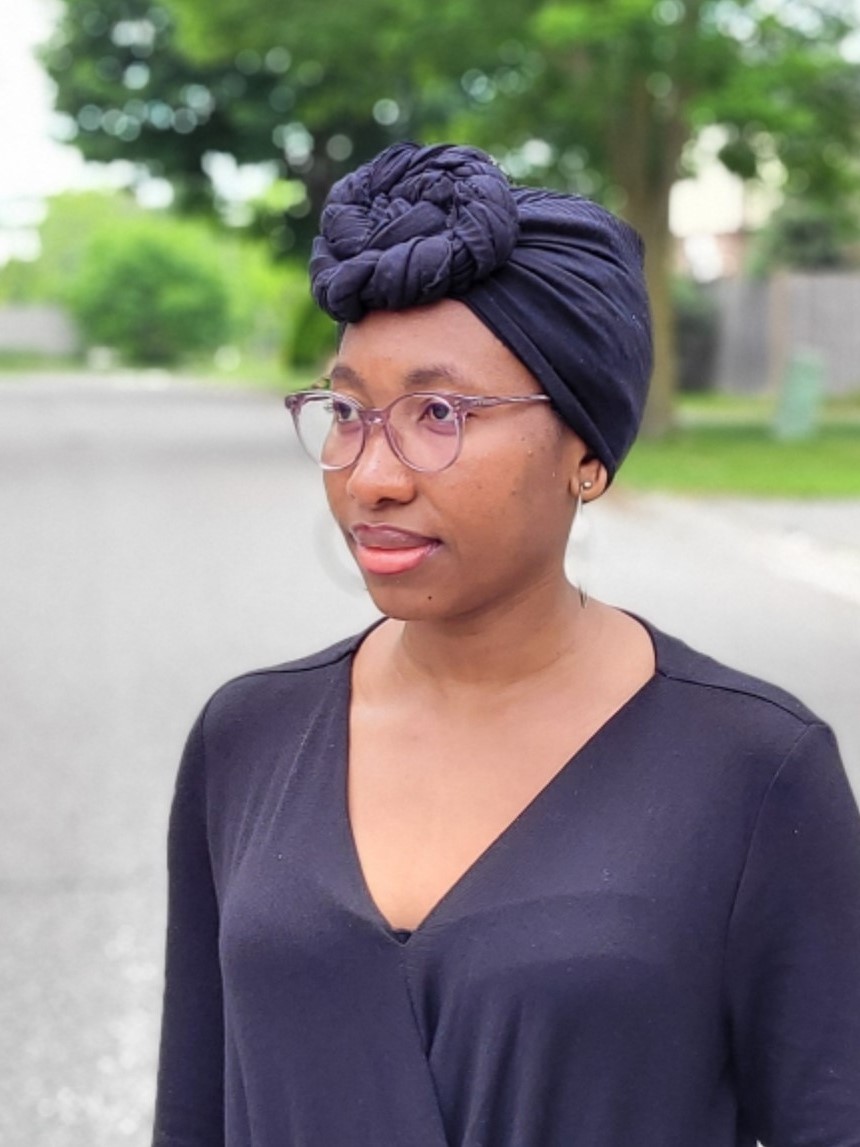Jemima Nomunume Baada
Research Area
Education
University of Western Ontario, 2022, PhD
University of Western Ontario, MA
University of Ghana, BA
About
I am an interdisciplinary climate-migration scholar, and my research and teaching are at the intersections of gender, climate change, migration, health and development equity.
My teaching focuses on how gendered structures, geopolitical and sociocultural relations, climate change and ongoing development practices affect the lives of migrants, non-migrants and return-migrants in diverse rural and urban contexts, and how to create inclusive opportunities for these groups. Similarly, my research uses a gendered lens to examine how diversely situated individuals and groups are affected by climate change, development processes, health inequalities and migration in sub-Saharan Africa (SSA) and other parts of the world. I am particularly interested in learning about the experiences of rural dwellers, women and those whose livelihoods depend on environmental/natural resources (e.g., farmers). I am also interested in understanding how factors such as gender, climate-vulnerability and migration status may act as social determinants of health.
Outside of academia, I have work experience with non-academic institutions such as non-governmental organisations (NGOs), intergovernmental organisations (IGOs), and development agencies. I have worked with the International Centre for Agricultural Research in the Dry Areas (ICARDA) on issues of migration in the past, and currently work on the organisation’s Resilient Agricultural Livelihood Systems Programme.
Within SSA, I have done work in countries such as Ghana, Ethiopia, Kenya and Malawi. In Canada, I am currently exploring experiences of sexual and reproductive healthcare among immigrant and refugee women in British Columbia.
My research and teaching interests are informed by my broader personal and professional goals of contributing towards ensuring that theory, policy and practice respond equitably to the needs of women, migrants, climate-affected and other marginalised groups.
My past and ongoing research have been funded by the International Development Research Centre’s (IDRC) Hopper-Bhatia Canada Fellowship, the Vanier Canada Graduate Scholarship, and the Canadian Queen Elizabeth II Diamond Jubilee Scholarship.
Teaching
Publications
2023
Baada, J. N. Najjar, D. and M. H. Seifu. 2023. Can a cash crop be a women’s crop?: Examining gender norms, relations and equity around lentil commercialization in Ethiopia. Scientific African 21, e01862. doi: https://doi.org/10.1016/j.sciaf.2023.e01862
Baada, J. N. Baruah, B. and I. Luginaah. 2023. Limit(ation)s, sustainability, and the future of climate migration. Dialogues in Human Geography. doi: https://doi.org/10.1177/20438206231177071
2022
Antabe, R. Sano, Y. Atuoye, K. N., and J. N. Baada. 2022. Determinants of HIV-related stigma and discrimination in Malawi: evidence from the demographic and health survey. African Geographical Review: 1-13. doi: 10.1080/19376812.2022.2086591
2021
Baada, J. N. Antabe, R. and Y. Sano. 2021. Differentiated agrarian vulnerabilities and generalized national responses to COVID‐19 in the Upper West Region of Ghana. Journal of Agrarian Change, 1-16.
Baada, J. N. Baruah, B. Sano, Y. and I. Luginaah. 2021. Mothers in a ‘Strange Land’: Migrant Women Farmers’ Reproductive Health in the Brong-Ahafo Region of Ghana. Journal of Health Care for the Poor and Underserved 32(2): 910-930.
Baada, J. N., and J. Polzer. 2021. Ambivalent Complicities and Knowledge Production: Researching Migrant Women Farmers’ Reproductive Health Experiences in the Middle-Belt of Ghana. Sociology of Health and Illn. doi: 10.1111/1467-9566.13407
Baada, J. N. 2021. Experiences of sociocultural reproduction among migrant women in the Brong-Ahafo Region of Ghana. In Handbook of Culture and Migration, edited by Cohen, J.H. and I. Sirkeci, 412-424. Cheltenham, UK: Edward Elgar Publishing. doi: https://doi.org/10.4337/9781789903461.00044
Baada, J. N., and B. Baruah. 2021. Internal Migration as a Determinant of Antenatal Care in the Brong-Ahafo Region, Ghana: Does Length of Residence Matter?. Gender Matters Globally: Geography, Health and Sustainability, edited by Williams, A., and I. Luiginaah, 183-199. London: Routledge. doi: https://doi.org/10.4324/9780367743918
2020
Baada, J. N. Baruah, B. and I. Luginaah. 2020. Looming crisis–changing climatic conditions in Ghana’s breadbasket: the experiences of agrarian migrants. Development in Practice: 1-14.
Baada, J. N. and D. Najjar. 2020. A review of the effects of migration on the feminization of agrarian dryland economies. Journal of Gender, Agriculture and Food Security Agri-Gender 5(2): 1- 12.
2019
Baada, J. N. Baruah, B. and I. Luginaah. 2019. What we were running from is what we’re facing again’: examining the paradox of migration as a livelihood improvement strategy among migrant women farmers in the Brong-Ahafo Region of Ghana. Migration and Development 8 (3): 1-24.

